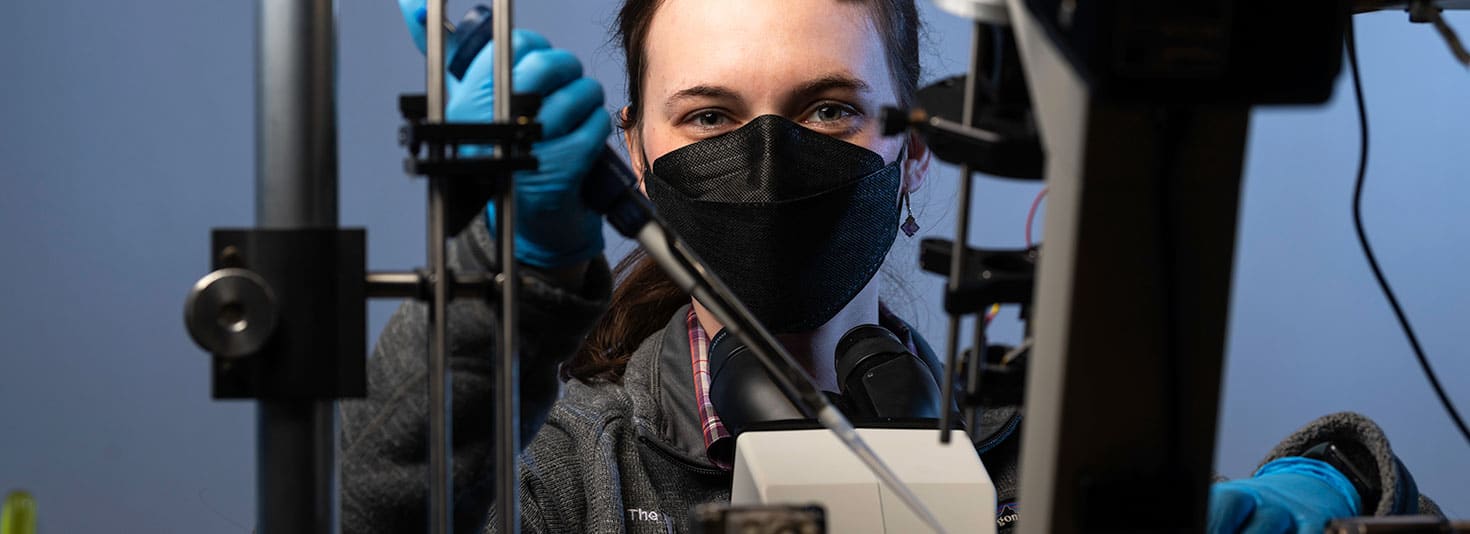The science of light is a great field to be an expert in. Optics is a niche area of study that stands between physics, mechanical engineering, electrical engineering, and biomedical engineering. Science degree holders, particularly those from material science, chemistry and data science, are welcome to join this field too. Given the disciplines it straddles, optics plays an important role in several industrial sectors, from manufacturing and ICT to medicine. And without it, scientists would not have been able to produce ground-breaking inventions like the laser and the holograph.
Those seeking a place in this field growing in industrial research and development would do well to earn an advanced degree in optics, especially those offered by any of the top-ranked universities below:

Source: The Institute of Optics
The Institute of Optics at the University of Rochester
Every year, talented students from around the world join The Institute of Optics at the University of Rochester to pursue a PhD programme that prepares them to carry out independent, creative research in an industrial, academic, or government setting. For the next five or more years, they undertake a combination of research, coursework, teaching assistantships, and thesis work.
What’s special about this programme is it offers two types of support: flexibility in choosing a research area and financial support. Students are not assigned to a research group upon admission. They can explore various groups before selecting a specific area with an advisor within optics after completing two semesters. Tuition is free for up to 90 credits, and each PhD student in a research group earns a stipend, which includes health and childcare benefits.
“My advisor and committee members nurtured my professional development by challenging my critical thinking skills, while always having an open door when I needed support,” says graduate Kaitlin Dunn. “Most importantly, the collaborative culture at the Institute instilled in me the value of having a professional and academic community of peers where I will always feel at home.”
PhD students at the Institute of Optics have access to the optics and photonics industry too. The Industrial Associates Programme provides students with opportunities to present their research to company representatives, faculty and guests — encounters which have launched hundreds of successful careers and scientific discoveries. During the bi-annual Industrial Associates meetings, students take part in poster sessions, career fairs, job interviews as well as formal and casual networking opportunities.
Imperial College London
Home to one of the UK’s largest optics-based research and application centres, Imperial College London’s Department of Physics has offered an advanced optics programme for over 80 years. Its current MSc in Optics and Photonics draws on the university’s wealth of experience, surveying changes in the science and incorporating the latest research into its curriculum to prepare graduates for their future careers.
At the only university in London to offer a programme in optics and photonics, you’ll have a fully immersive experience as you explore key topics like imaging, laser fundamentals, optical measurements and devices, and optical communications. Laboratory and project work are substantial and often based within the industry throughout the programme. The opportunity to take on a self-study project in an area of your choice is also available, and your master’s will conclude with a full-time project, either in an industry, an academic research group, or abroad.
Hortense Allegre joined Imperial after completing her undergraduate degree in France. She enjoyed lots of hands-on work in the lab, so much so that after completing her MSc programme, she continued with a PhD here. “Gaining all the scientific ideas you need to have, the way of thinking — these are the things I gained from the course that I did and this helps me every day now,” she says. “If I had to sum it all up in one sentence, I’d say that I learned how to be a scientist.”

The University of Sydney’s Institute of Photonics and Optical Science has research spanning all areas of optics and photonics. Source: University of Sydney.
University of Sydney
The University of Sydney’s Institute of Photonics and Optical Science (IPOS) has research spanning all the areas of optics and photonics. The PhD programme draws research and expertise from the Schools of Physics, Electrical and Information Engineering, Mathematics, and Chemistry. IPOS’s broad research programmes consist of theory and experiment. Here, they have a special focus on planar and fibre-bed lightwave devices and circuits, plasmonics and photonics in nature, and innovative optical and fibre-based techniques for astronomy.
With world-class facilities – some of which are solely for IPOS members while others are available to external users – networking opportunities through the active faculty and industry connections, and projects that allow IPOS and other organisations in different industries to collaborate in research and develop projects together, the programme is a launchpad to shaping innovative scientist and engineers of optics and photonics.

The University of Southampton has a range of PhD research opportunities available, from working with lasers, metamaterials, optoelectronics, Photonics, Fibre Optics, Hollow Core Fibres and more advanced materials. Source: University of Southampton.
University of Southampton
The University of Southampton’s MSc Optical Engineering programme is based in the Optoelectronics Research Centre (ORC), one of the world’s leading institutes for photonics research. Covering the basics of modern optical and photonic engineering, the programme emphasises physical optics in settings like communications, computing, and sensors.
The master’s programme is led by Bill Brocklesby, who has over 15 years of research expertise around novel imaging and microscopy techniques using visible and X-ray light sources. Under his and the rest of the expert faculty’s guidance, you’ll study the principles of lasers, optical technology and the practical aspects of their design, fabrication, and applications.
Specialisations in different areas of optoelectronics are available in the programme too, as well as optional modules that cover a range of topics, from silicon photonics to optical communications. The programme also balances theoretical and practical lessons, allowing you to fully comprehend the scope of the subject without compromise.










